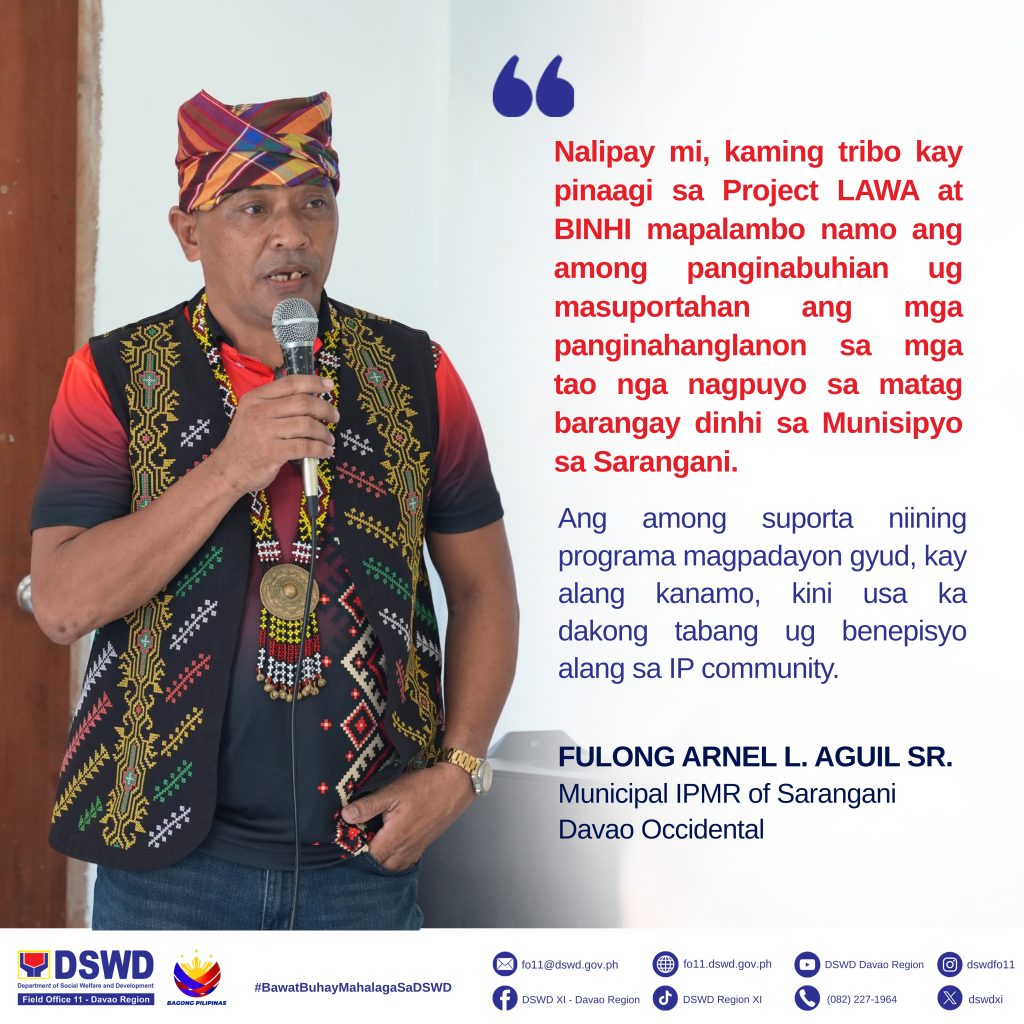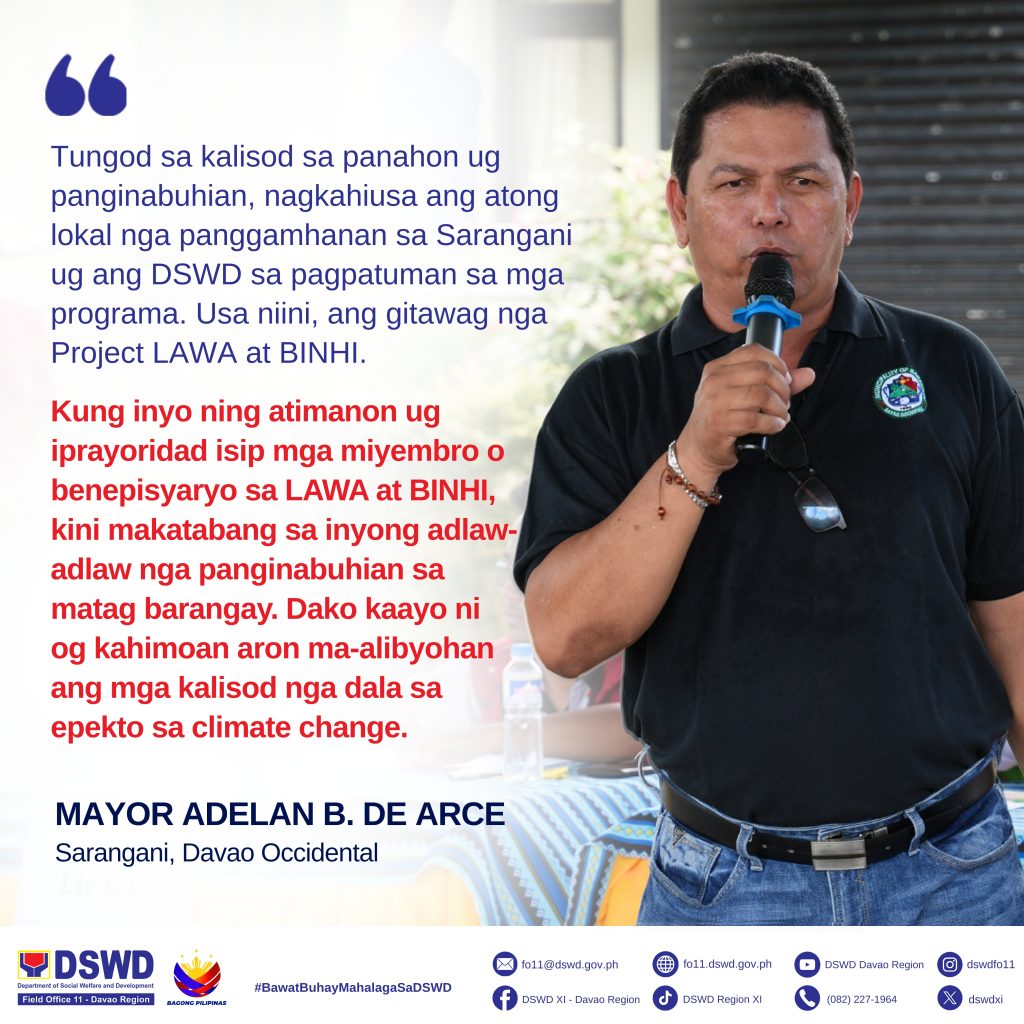The Department of Social Welfare and Development (DSWD) Field Office XI strengthened its commitment to climate resilience and inclusive development through a week-long engagement with Indigenous Peoples (IPs) in Sarangani, Davao Occidental, held from May 26 to 30, 2025. The initiative formed part of the agency’s implementation of Project LAWA and BINHI under the Risk Resiliency Program – Climate Change Adaptation and Mitigation (RRP-CCAM).
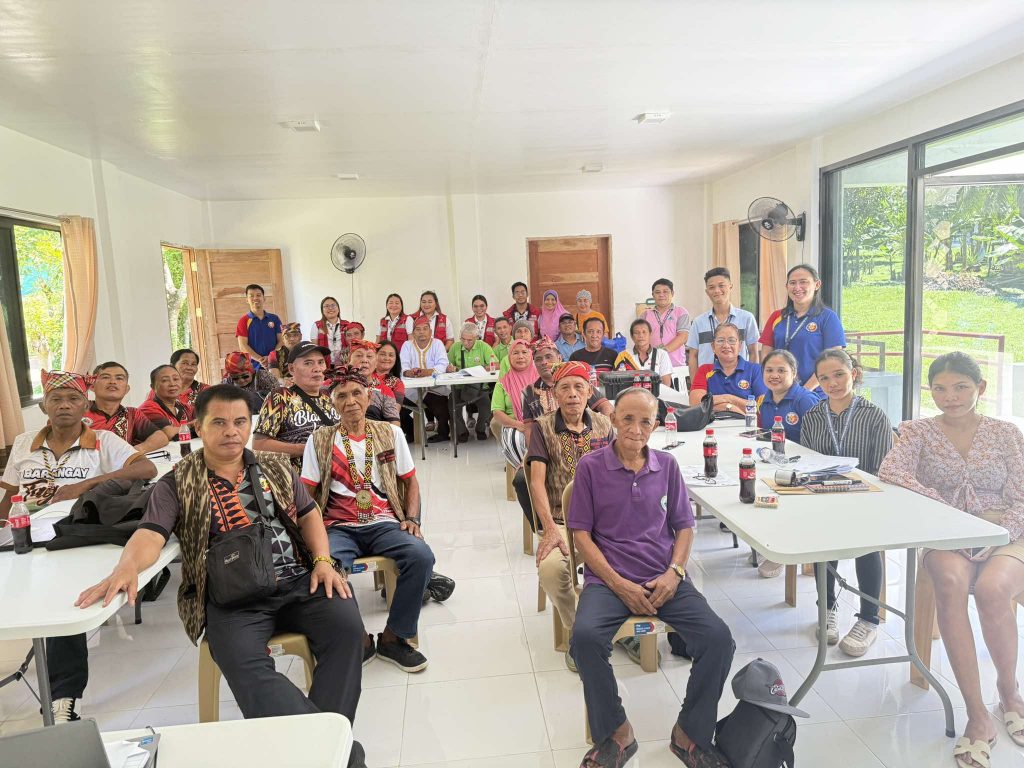
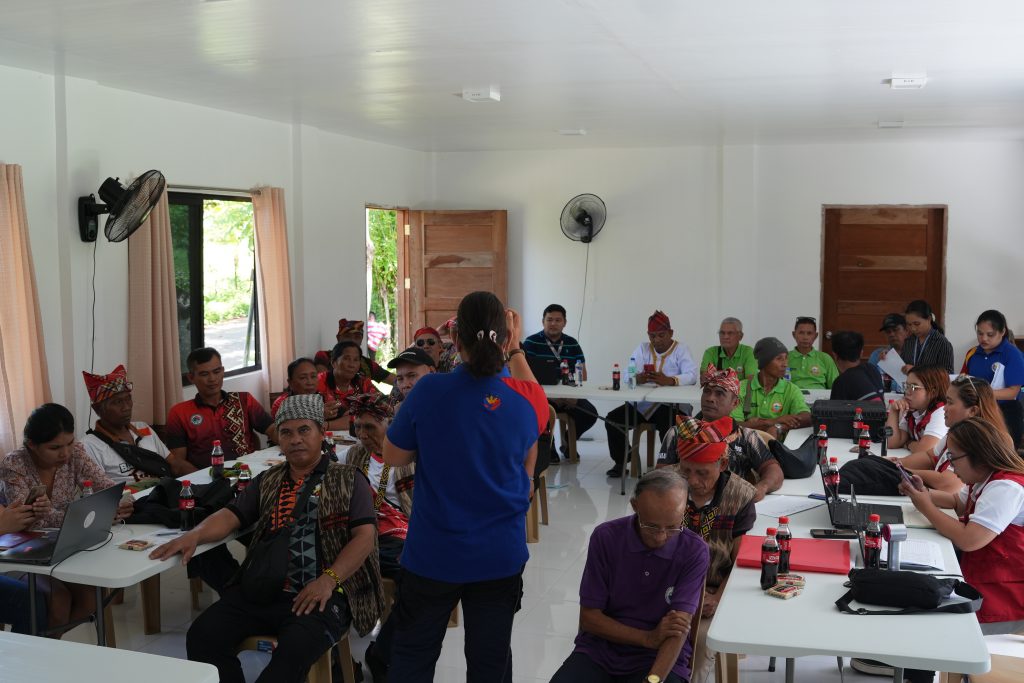
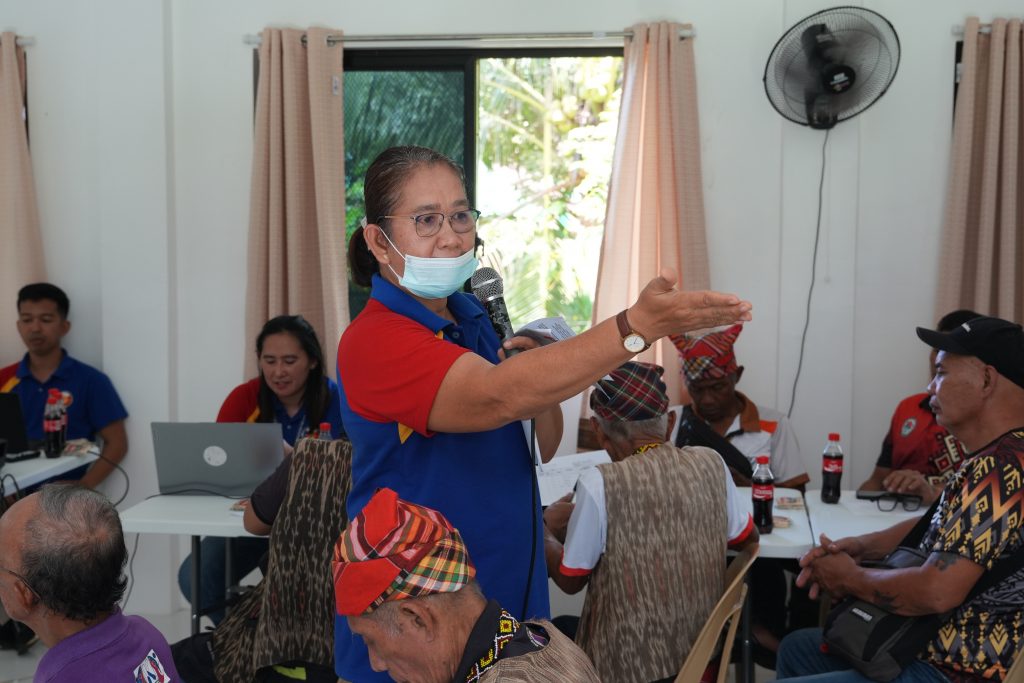
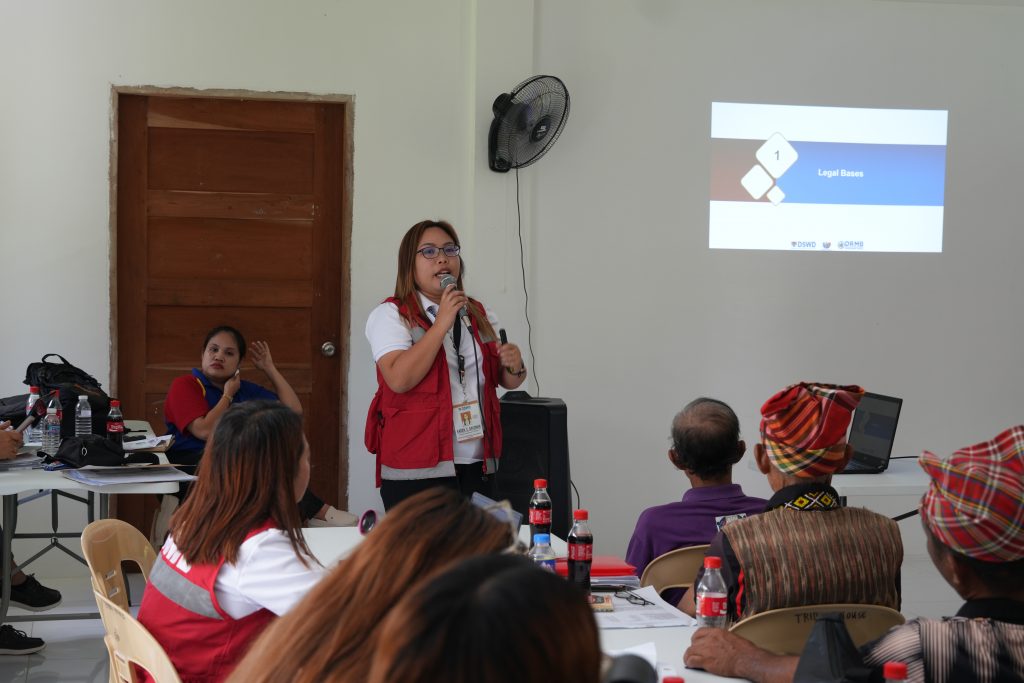
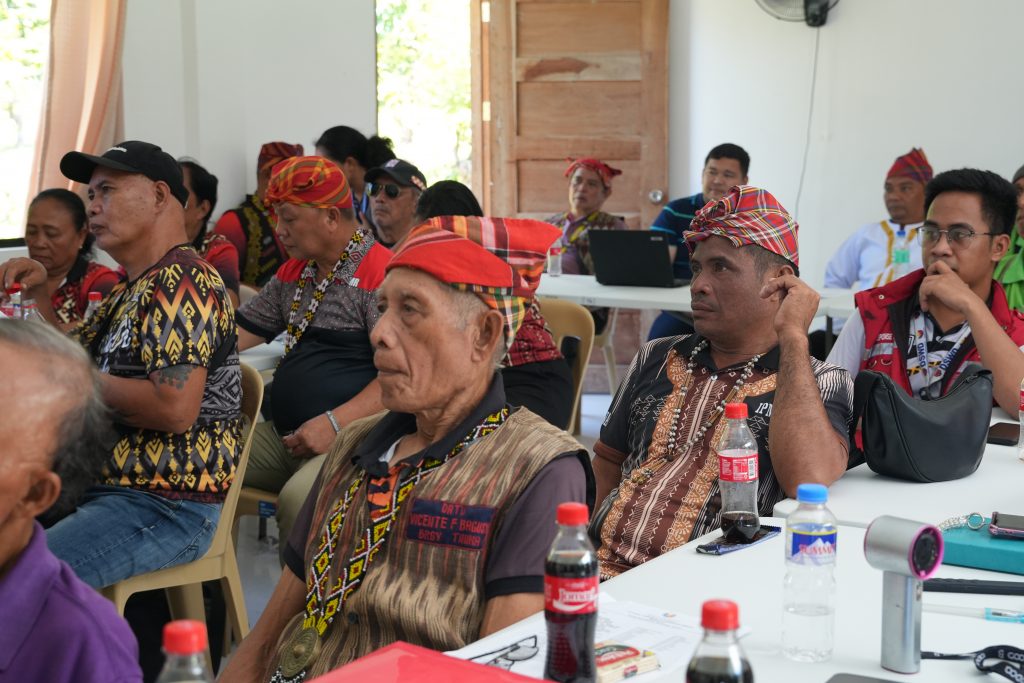
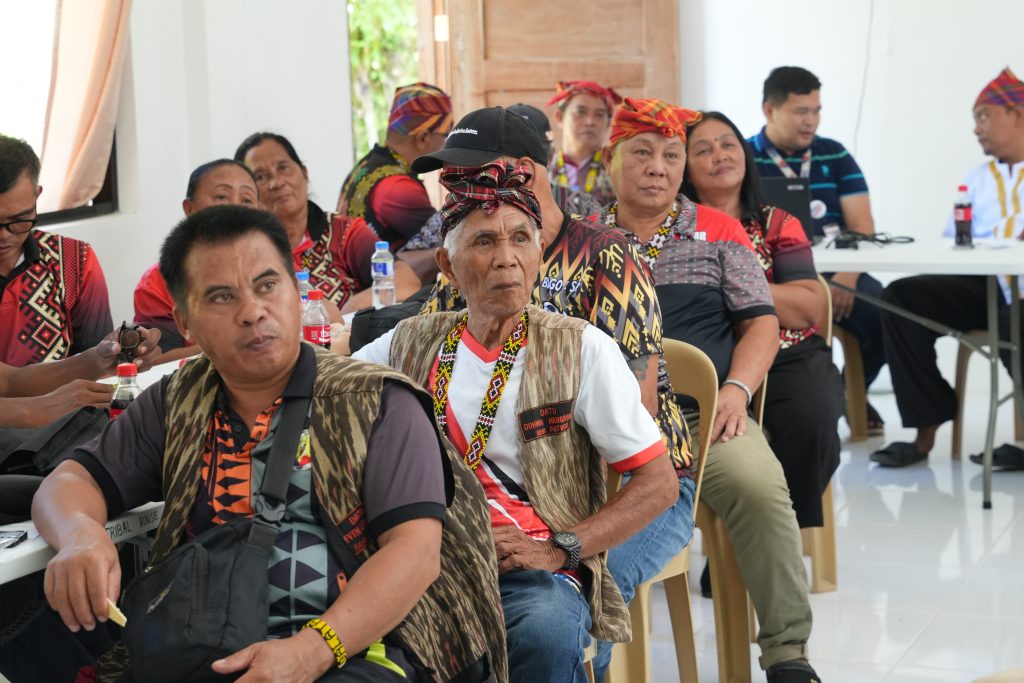
Central to the series of activities was the orientation of 30 IP Council Leaders on the objectives and components of the project, alongside the conduct of Free and Prior Informed Consent (FPIC) in partnership with the National Commission on Indigenous Peoples (NCIP). These ensured that the voices, consent, and cultural perspectives of IP communities were respected and integrated into every stage of project implementation.
During the orientation, the IP Council Leaders voiced their full support, expressing optimism about the project’s potential to bring meaningful change to their communities—especially those facing the harsh impacts of climate change on the island.
“Nalipay mi, kaming tribo kay pinaagi sa Project LAWA at BINHI mapalambo namo ang among panginabuhian ug masuportahan ang mga panginahanglanon sa mga tao nga nagpuyo sa matag barangay dinhi sa Munisipyo sa Sarangani. Nagapasalamat kami sa DSWD tungod kay ilang gihatagan og dako’ng pagtagad ang IP community. Ang among suporta niining programa magpadayon gyud, kay alang kanamo, kini usa ka dakong tabang ug benepisyo alang sa IP community (We are thankful for Project LAWA at BINHI because it supports our livelihood and addresses the needs of our communities in Sarangani. We appreciate DSWD for giving importance to the IP sector. We fully support this program and hope it continues, as it truly benefits the IP community),” said Fulong Arnel L. Aguil Sr., the Municipal Indigenous Peoples Mandatory Representative (IPMR) of Sarangani.
In addition to FPIC and orientation sessions, the DSWD team facilitated sustainability and action planning workshops, enabling participants to develop concrete, community-based strategies for resilience, environmental conservation, and resource management.
“Ang among tumong mao ang pagtukod ug tinuod nga panag-uban sa mga IP leader, aron matabangan sila nga masabtan nga dako ang ilang papel sa pagmugna og komunidad nga andam sa epekto sa klima. Ilang pagtugot, panglantaw, ug pagpanguna maoy susi sa kalampusan sa proyekto (Our goal is to build genuine partnerships with IP leaders and help them realize their central role in creating climate-resilient communities. Their consent, insight, and leadership are key to the project’s success),” said Karen C. Gayonan, Project Development Officer III of DSWD XI.
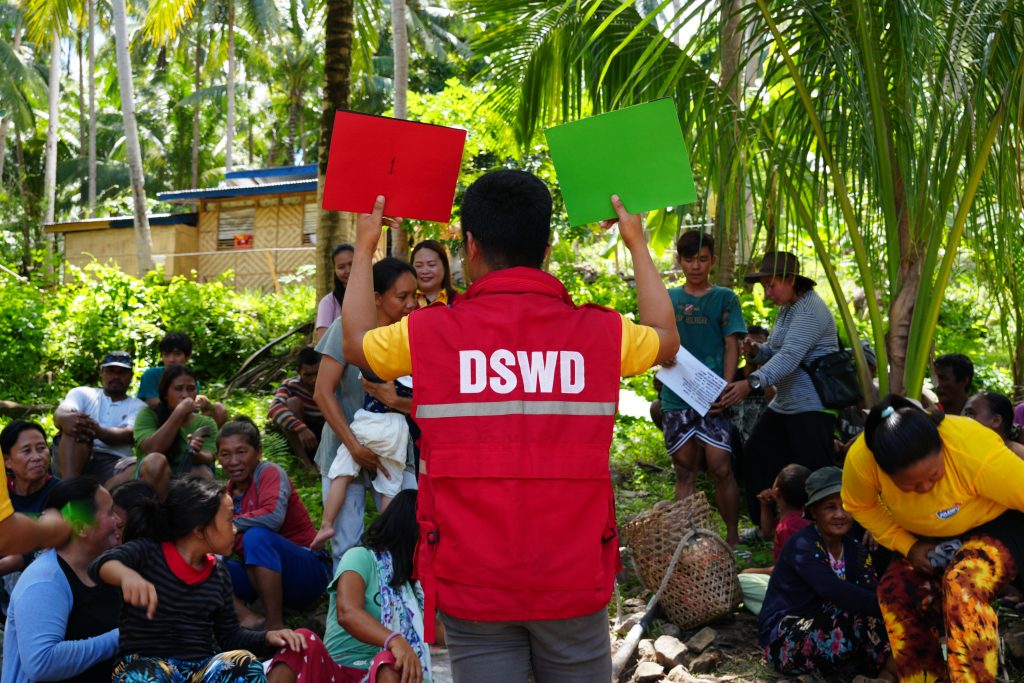
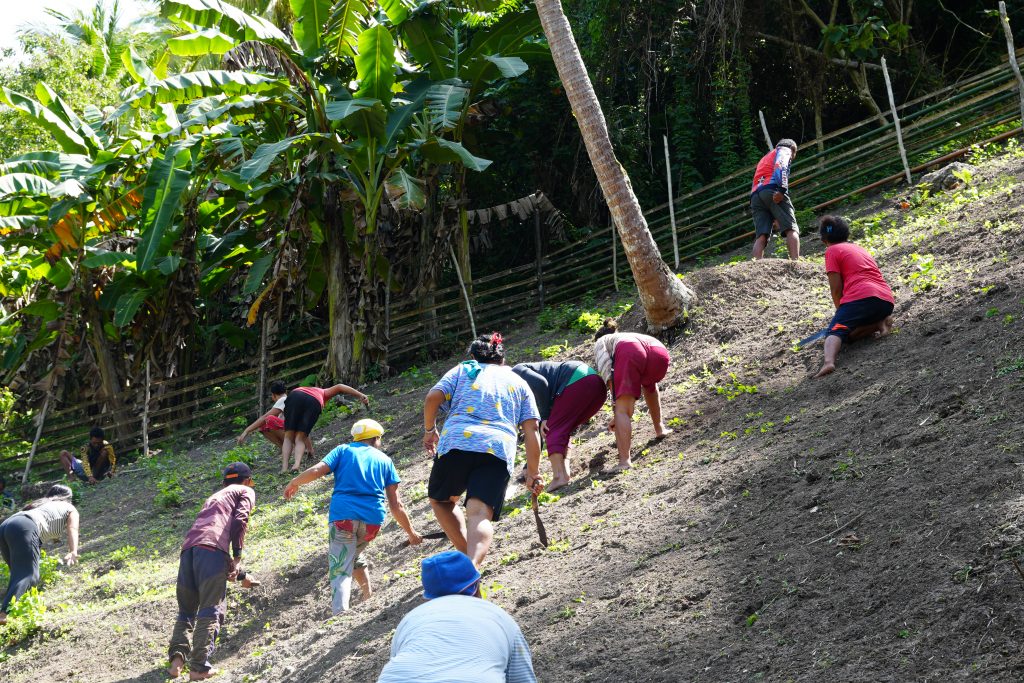
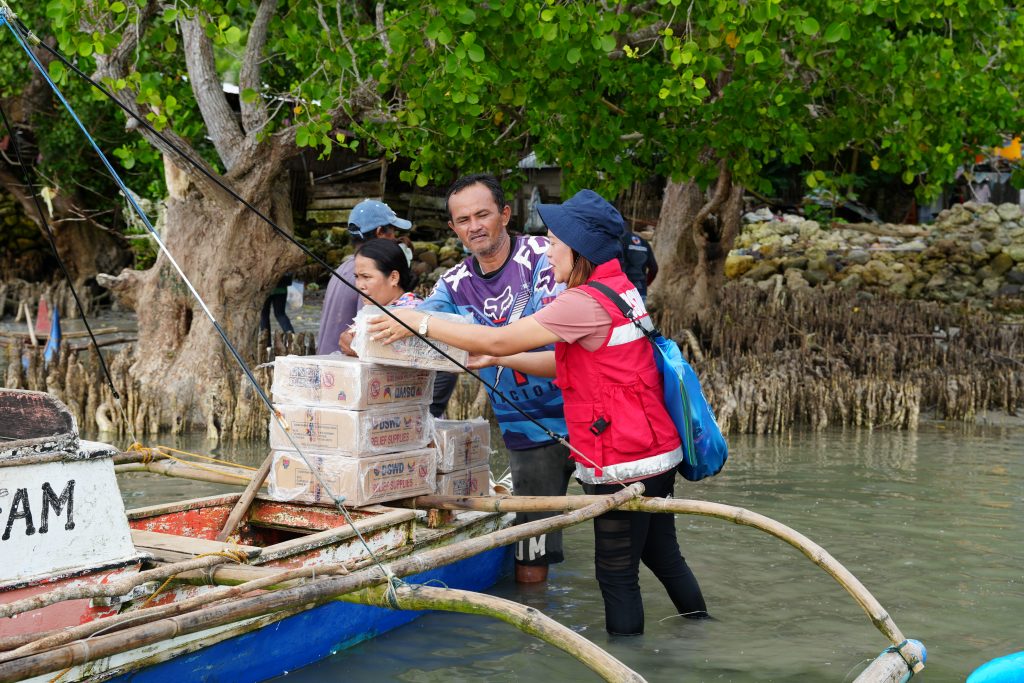
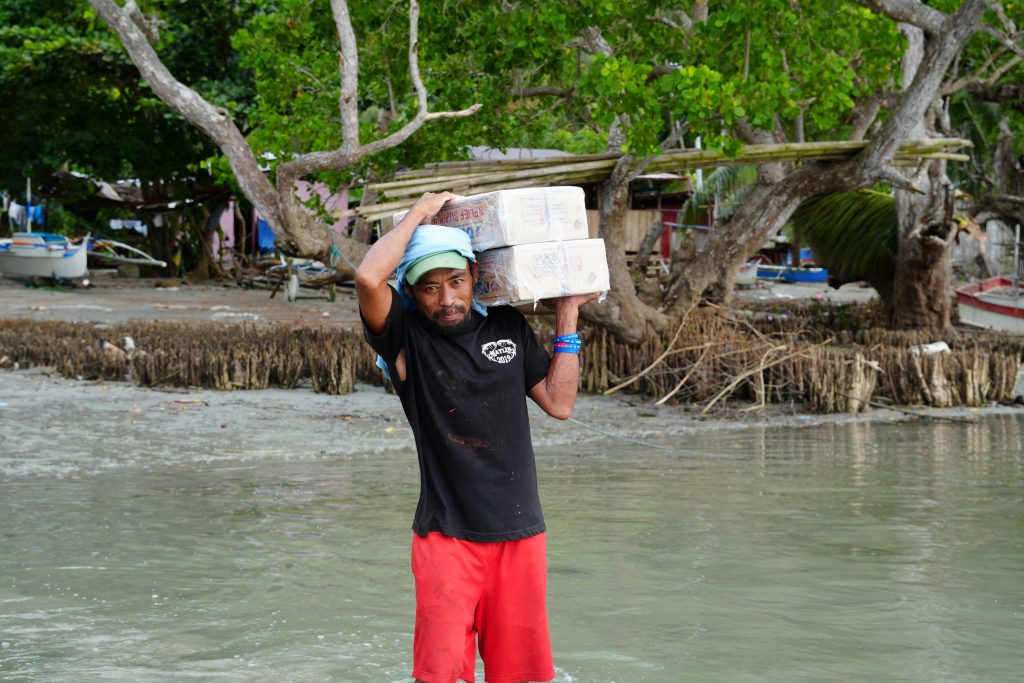
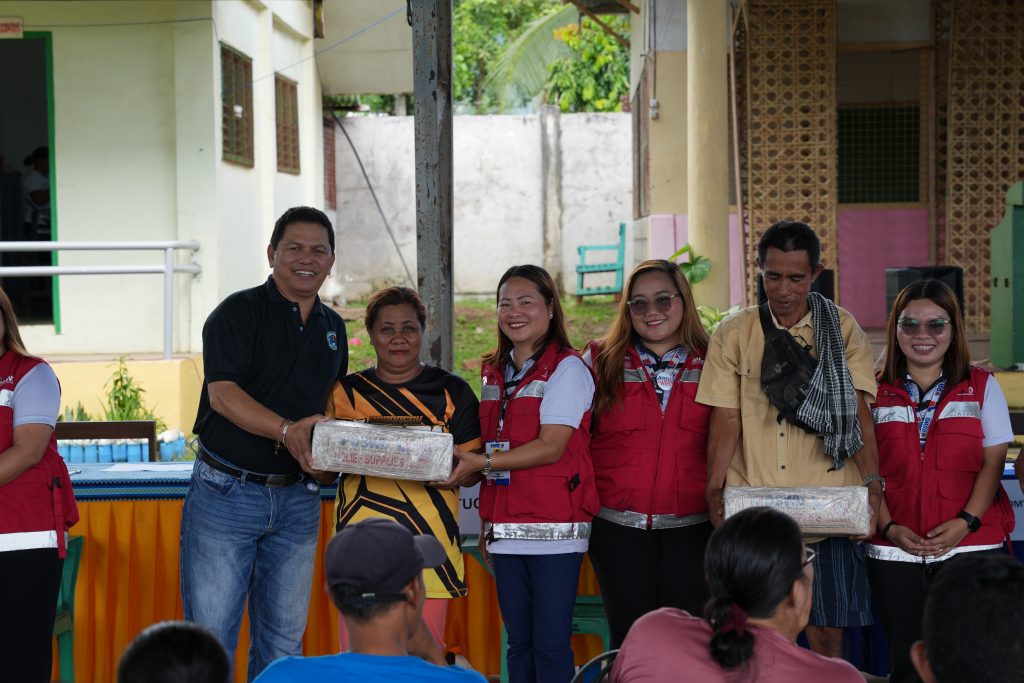
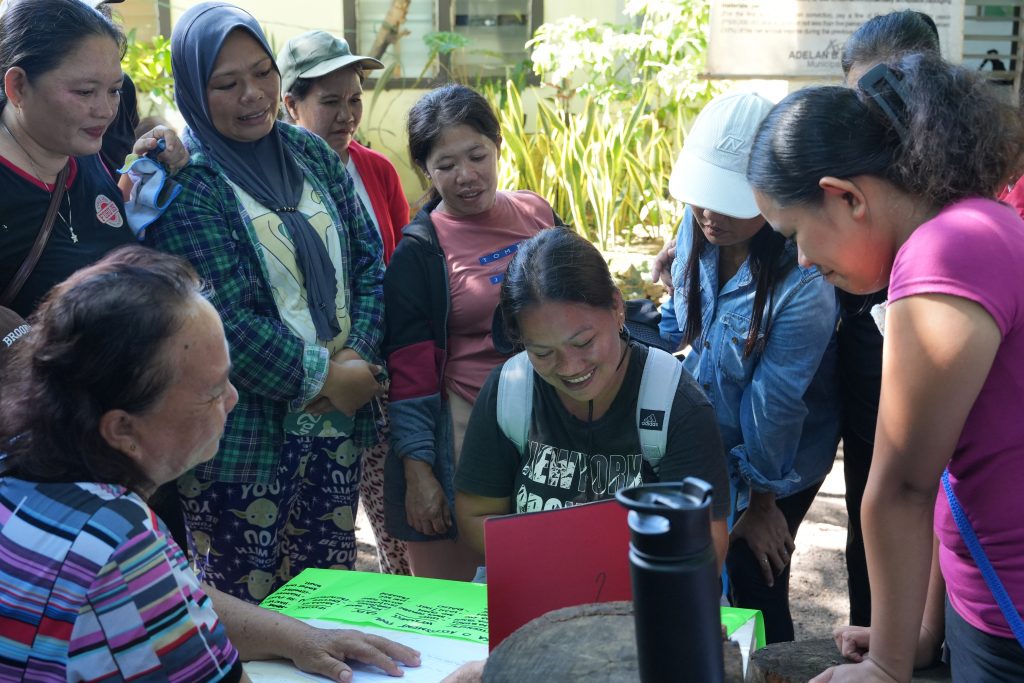
To further promote transparency and accountability, geotagging and site monitoring were conducted in the barangays of Mabila, Tagen, and Camahual. Additionally, Food-for-Work assistance was distributed to beneficiaries as part of the project’s immediate support interventions.
The project also gained strong support from Mayor Adelan B. De Arce of Sarangani, who reaffirmed his commitment during the distribution of Family Food Packs (FFPs) held at Alberto Olarte Sr. National High School on March 29, 2025.
“Kung inyo ning atimanon ug iprayoridad isip mga miyembro o benepisyaryo sa LAWA at BINHI, kini makatabang sa inyong adlaw-adlaw nga panginabuhian sa matag barangay. Dako kaayo ni og kahimuan aron ma-alibyuhan ang atong kalisud panahon sa epekto sa climate change (If you take care of and prioritize this project as members or beneficiaries, it will support your daily livelihood in every barangay. This plays a big role in easing the hardships we face due to climate change),” the mayor emphasized, describing the project as a “God-given gift” to the people of Sarangani.
The activities were facilitated by representatives from DSWD XI, the Municipal Social Welfare and Development Office (MSWDO), and the Municipal Agriculture Office (MAO), reflecting a strong multi-agency collaboration to empower vulnerable communities.
“Kini nga proyekto labaw pa sa pag-andam batok sa epekto sa klima. Kini usa ka pagpanghimatuud sa kapasidad sa mga IP communities nga manguna sa ilang kaugalingong kalambuan, gamit ang mga himan ug kahibalo nga may kalabutan sa ilang kultura (This project is more than just climate adaptation—it affirms the capacity of IP communities to lead their own development using tools and knowledge that are rooted in their culture),” emphasized Jo Ann Labio, Davao Occidental’s Disaster Risk Reduction Focal.
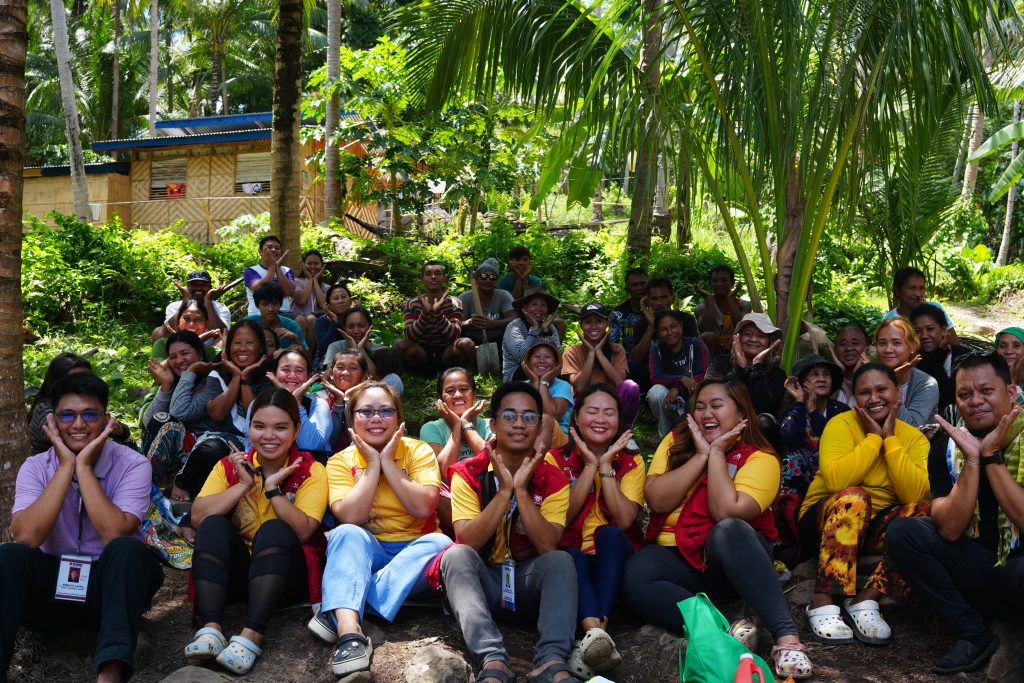
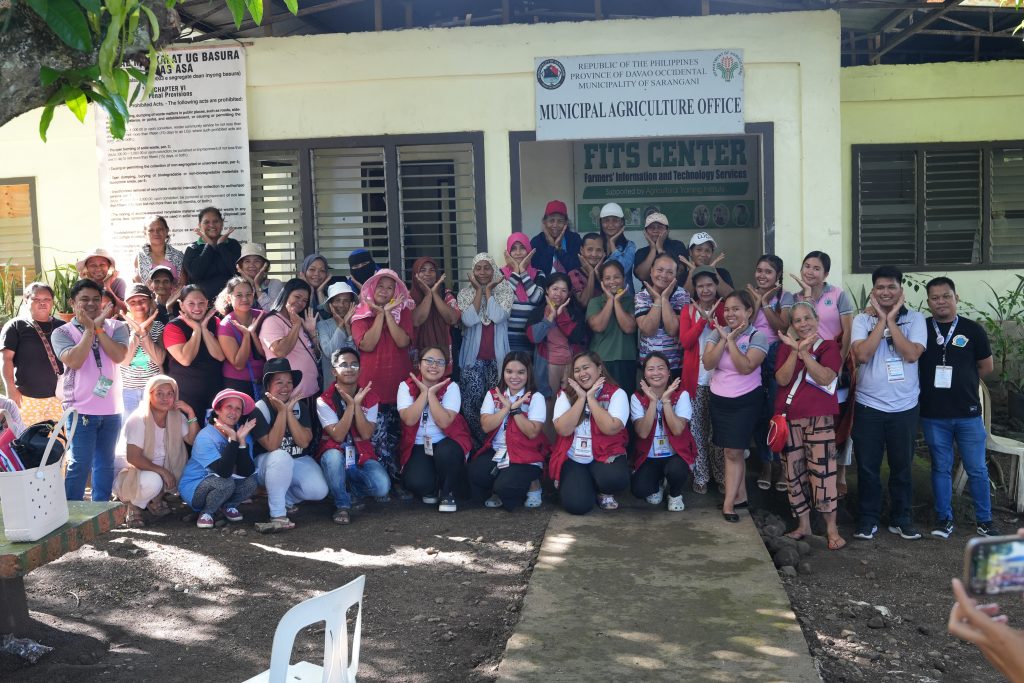
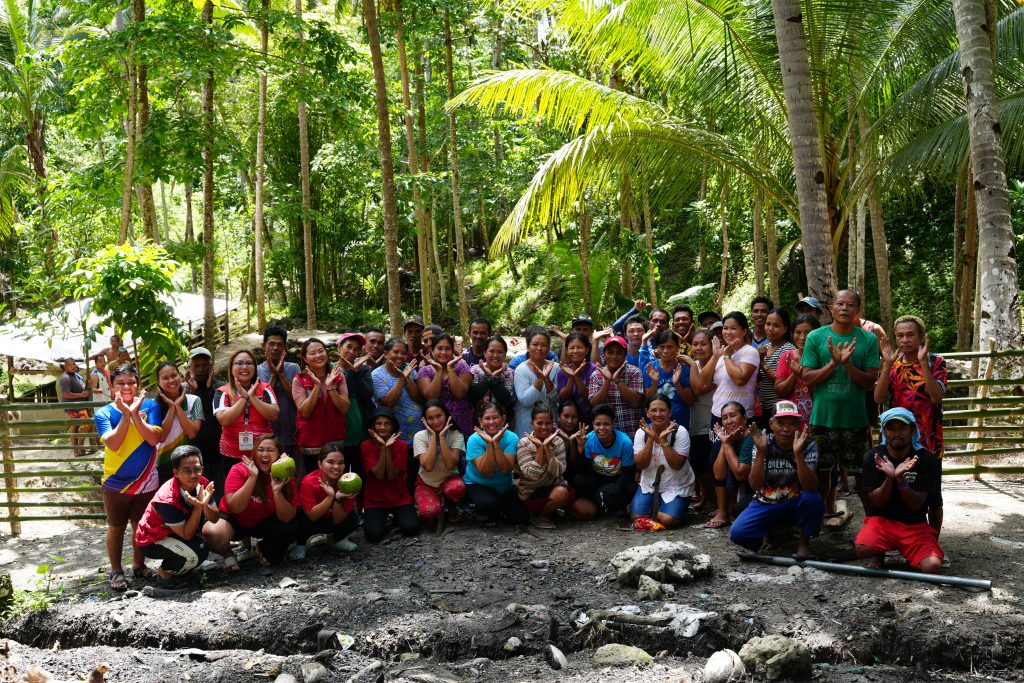
With this initiative, DSWD XI continues to champion inclusive, sustainable, and culturally sensitive strategies in building climate-resilient communities, particularly in remote and vulnerable areas across the Davao Region.

